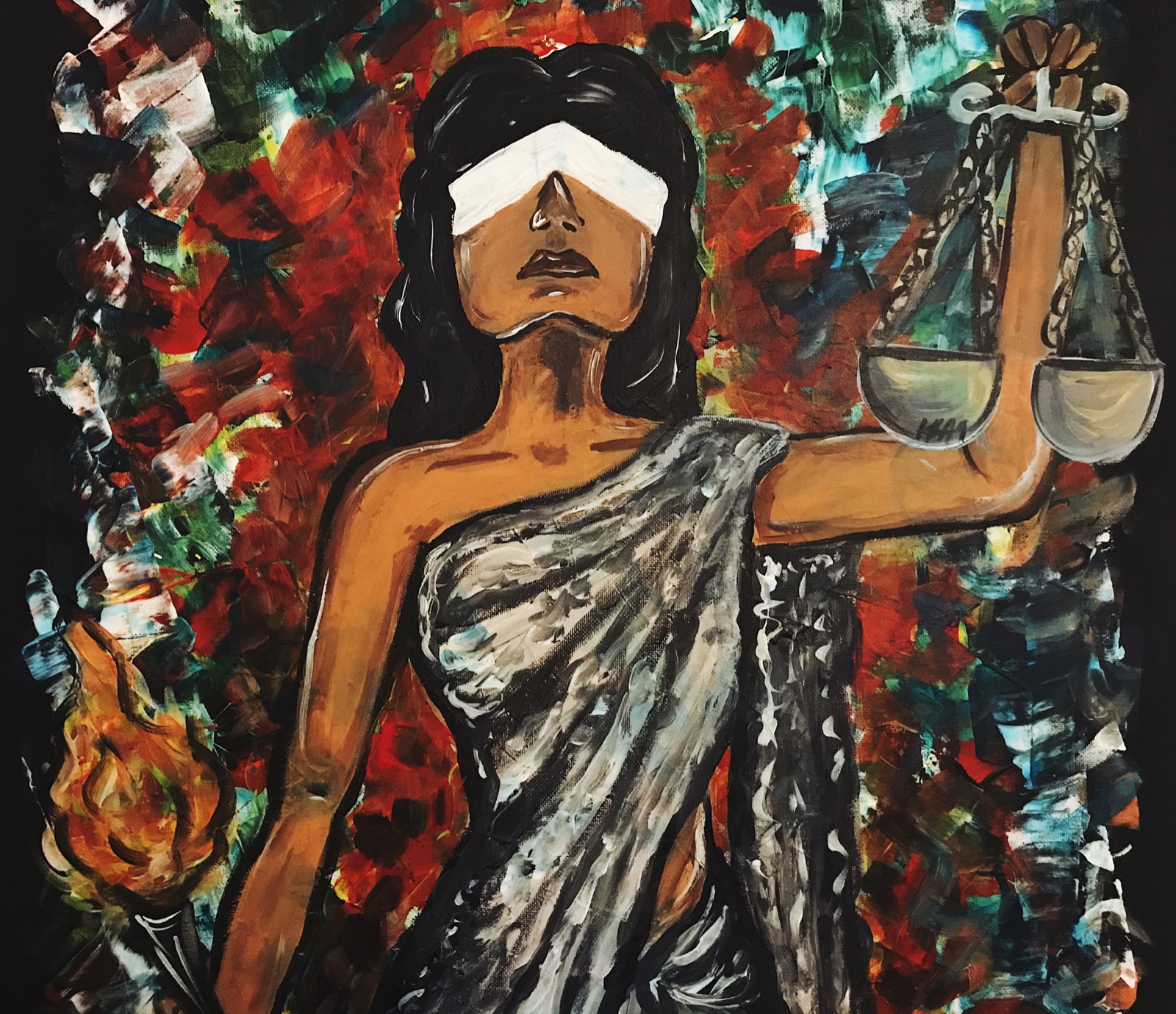
(Artwork by Keera Ratnam)
Last week, the United States announced long-overdue travel restrictions on two more accused Sri Lankan war criminals. The move is a step in the right direction and will be welcomed across the globe by those who seek justice on the island. It serves as a reminder to the Sri Lankan regime that no matter how many years pass, such egregious crimes cannot, and will not, be forgotten or unaccounted for. The announcement also highlights the gaping divide between the Sri Lankan state and those that seek accountability and a lasting peace. Indeed, whilst the US sanctioned war criminals, that same week Sri Lanka was promoting them. If this deepening impunity is to be reversed, more strident global action will be needed. Washington must now build on this step and rally the international community to follow with similar and more stringent measures.
The latest move sees Sri Lankan soldiers Chandana Hettiarachchi and Sunil Ratnayake now barred from travel to the United States. Their cases are clear cut. Hettiarachchi was implicated in the disappearance and presumed murder of the ‘Trinco 11’. Once on the run, then detained before being released and ultimately still not held accountable, his case highlights the intransigence of the Sri Lanka judicial system to dispense justice for serious violations. Decades have passed and Sri Lanka’s domestic mechanisms have demonstrated time and time again that they are both unable and unwilling to do so.
The other sanctioned soldier, Sunil Ratnayake, was one of several troops that murdered Tamil civilians, including children in the Mirusuvil massacre. However, he was the only one convicted, despite overwhelming evidence of wider involvement. Yet even this strikingly rare conviction would go on to mean little. Last year, Sri Lanka president Gotabaya Rajapaksa issued a presidential pardon, freeing Ratnayake. Even when war criminals are sentenced on this island, the state has shown it will continue to shelter them. Any hopes of obtaining justice were extinguished and the island’s long-lasting climate of impunity was cemented.
Though the latest travel bans are positive developments, recent events in Sri Lanka illustrate that they simply do not go far enough. Just days before Hettiarachchi was sanctioned, former Navy Commander Wasantha Karannagoda, a much more senior ranking officer implicated in the same Trinco 11 crime was promoted to Governor of the North-Western province. Whether it was a move to grant a veil of protection for the former commander – akin to how several Sri Lankan generals were given diplomatic postings in the wake of the 2009 genocide at Mullivaikkal – or simply a reward for being loyal to the Rajapaksas, it was a snub to the victims of his crimes, and to the accountability process. Karannagoda is not the first accused war criminal to be lauded or promoted by this regime, and he will not be the last.
Yet, no sanctions have been announced on him or others like him. Indeed, whilst the latest round of US visa bans has targeted two relatively low-level soldiers, it leaves many of the more senior accused war criminals who bear more responsibility and stand accused of much more heinous crimes untouched. Though Shavendra Silva, the head of Sri Lanka’s army, remains the sole senior figure barred from entry to the US, others such as Kamal Gunaratne – defence secretary and former head of Sri Lanka’s notorious 53rd army division -– remain free to travel as they please. Targeting low ranking troops who have never travelled to the US and may never have planned to do so will be interpreted more as a slap on the wrist, not a show of force.
The argument that the administration is not taking Sri Lanka seriously is strengthened when other more senior accused military officials, such as former army chief Mahesh Senanayake, are being lavished by the US military. Meanwhile, allies such as Britain continue to engage with Sri Lanka’s security establishment despite growing recognition of the serious and institutionalised nature of their crimes - including from bodies such as Police Scotland. Whilst the UK continues to pay lip service to resolutions at the UN Human Rights Council, which provides no tangible consequences for Sri Lanka’s failure to implement, to this day it has not imposed sanctions on a single Sri Lankan government or military official implicated in serious atrocities.
The US and others must enact a coordinated, government-wide policy that is consistent in its approach. Actions must match words. If there is to be any progress on tackling impunity, the latest measures must go further. Travel bans must be widened to include those further up in Sri Lanka’s political and military hierarchy that bear even greater responsibility for breaches of international law. Partners across the world must be rallied to do the same. Britain’s Magnitsky sanctions must be employed and prosecutions under universal jurisdiction must be vigorously pursued. Sri Lankan war criminals, no matter how senior, must know that they are not above international law. As UN High Commissioner Michelle Bachelet noted earlier this year, “steps towards the referral of the situation in Sri Lanka to the International Criminal Court (ICC)”, must be another such move. It is only then that the international community would really show that it is serious on Sri Lanka.
